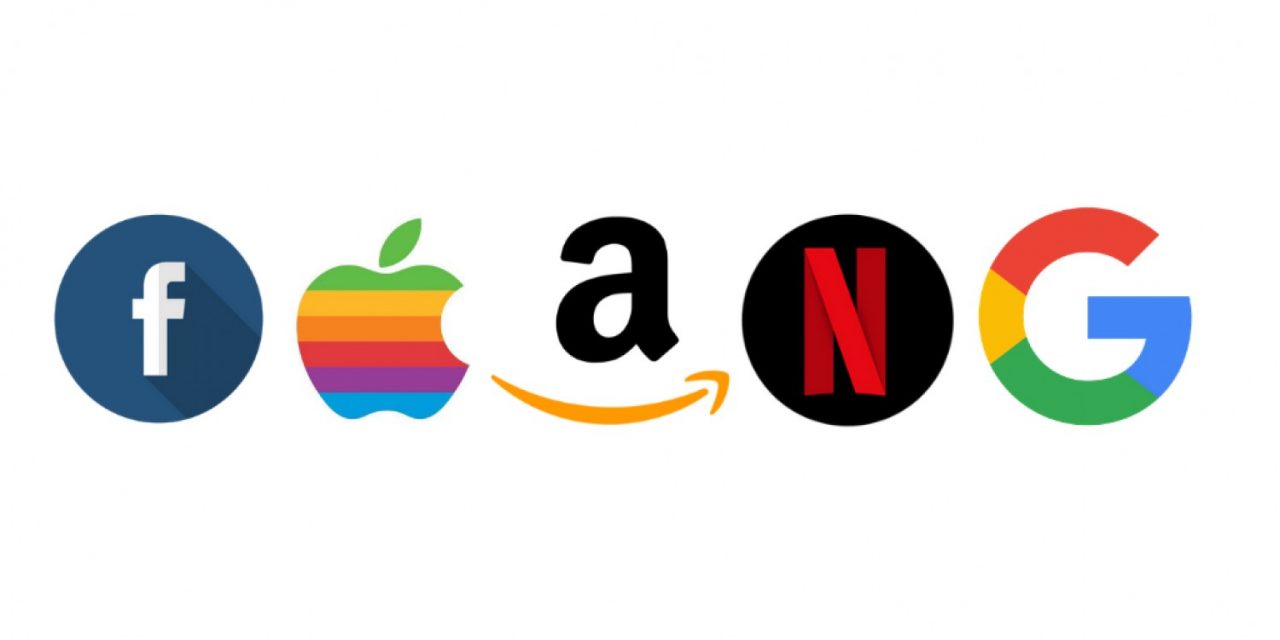
The FAANGs are Facebook, Apple, Amazon, Netflix and Google. I’ve been investing into the FAANG stocks since 2009 and have watched with fascination their incredible success. See the links at the bottom for different summaries of how much their stocks have grown over the years. Put simply, this growth is largely due to the Pareto Principle or 80:20 rule outlined below.
While the FAANGS have delivered incredible returns, I also have concerns and reservations about the market dominance they hold. By some measures they wield more control, wealth and power than most governments around the world put together. A scary thought. Privacy issues aside they all remain as generally popular, much-loved brands that make our lives easier and operate with far more benevolence than malevolence, thankfully. However they exist in order to grow and to profit and answer to shareholders, who are not always the most ethically minded. While governments and regulators occasionally seek to clip their wings, it remains to be seen if anything that significant will ever be done to reign in their seemingly endless expansion and growing dominance.
The Pareto Principle
As the FAANGs have dominated the market, they have increasingly solidified their position in the market to dominate it further. Over 80% of people using search engines, use Google. Over 80% of people shopping online, use Amazon. And so on. That is not what the Pareto Principle or 80:20 rule means exactly, there is more to it than that.
The Pareto Principle states that for many outcomes, roughly 80% of consequences come from 20% of the causes (the “vital few”). It is also known as the 80/20 rule, the law of the vital few, or the principle of factor sparsity. Read more about The Pareto Principle at Wikipedia.
Should the FAANG acronym be updated?
I wonder if the FAANG acronym could be updated and replaced with something better. Microsoft, with market cap approaching $2tn in 2021 is about 8 times bigger than Netflix ($240bn), which should really be removed were it not for its stellar growth. Some people now say FAMANG to include Microsoft while others leave out Netflix Perhaps the biggest US tech giants… Microsoft, Apple, Amazon, Alphabet and Facebook should become FAAAM (pronounced “farm”) or MAAAF (pronounced “Marf”)
Why not Alibaba or Tencent?
Alibaba and Tencent are tech stocks with similar market cap to Facebook, but are not US firms. They are already denoted by BATX, the acronym for the four biggest tech firms in China (Baidu, Alibaba, Tencent, Xiaomi). If Alibaba were included to make MAAAAF, then at least the “Marf” moniker is unaffected. Both could be included to make MAAAAFT or “marft”, but this makes the name overlong and too protracted. Including non-US stocks also gets tenuous and precarious, since then people question why the likes of Samsung do not get bundled in too. This only gets harder as the fortunes of firms rise and fall. It feels more simple, clean and future-proof to keep it to just MAAAF and restrict it to “the big five”, all US stocks exclusively.
Why MAAAF and not FAAAM?
FAAAM would be pronounced “Farm”, which has a nice ring to it and is an apt way to describe the most productive powerhouses of the stock market. However, Facebook is the newest, smallest and least popular of the gang. It does not deserve first place. Microsoft does, as the elder statesman of the group and among the most influential companies in the history of computing. Also, “Farm stocks” would be easily and frequently confused with “pharma stocks”.
Anyway, this is all admittedly very meta and petty, just my thoughts and musings really!
Further FAANG Reading
Here are some useful links to learn more about the FAANGs and their incredible performance over the years.
https://en.wikipedia.org/wiki/Big_Tech
https://www.investopedia.com/terms/f/faang-stocks.asp
https://www.fool.com/investing/stock-market/market-sectors/information-technology/faang-stocks/
https://groww.in/blog/faang-stocks-performance-over-the-last-decade/